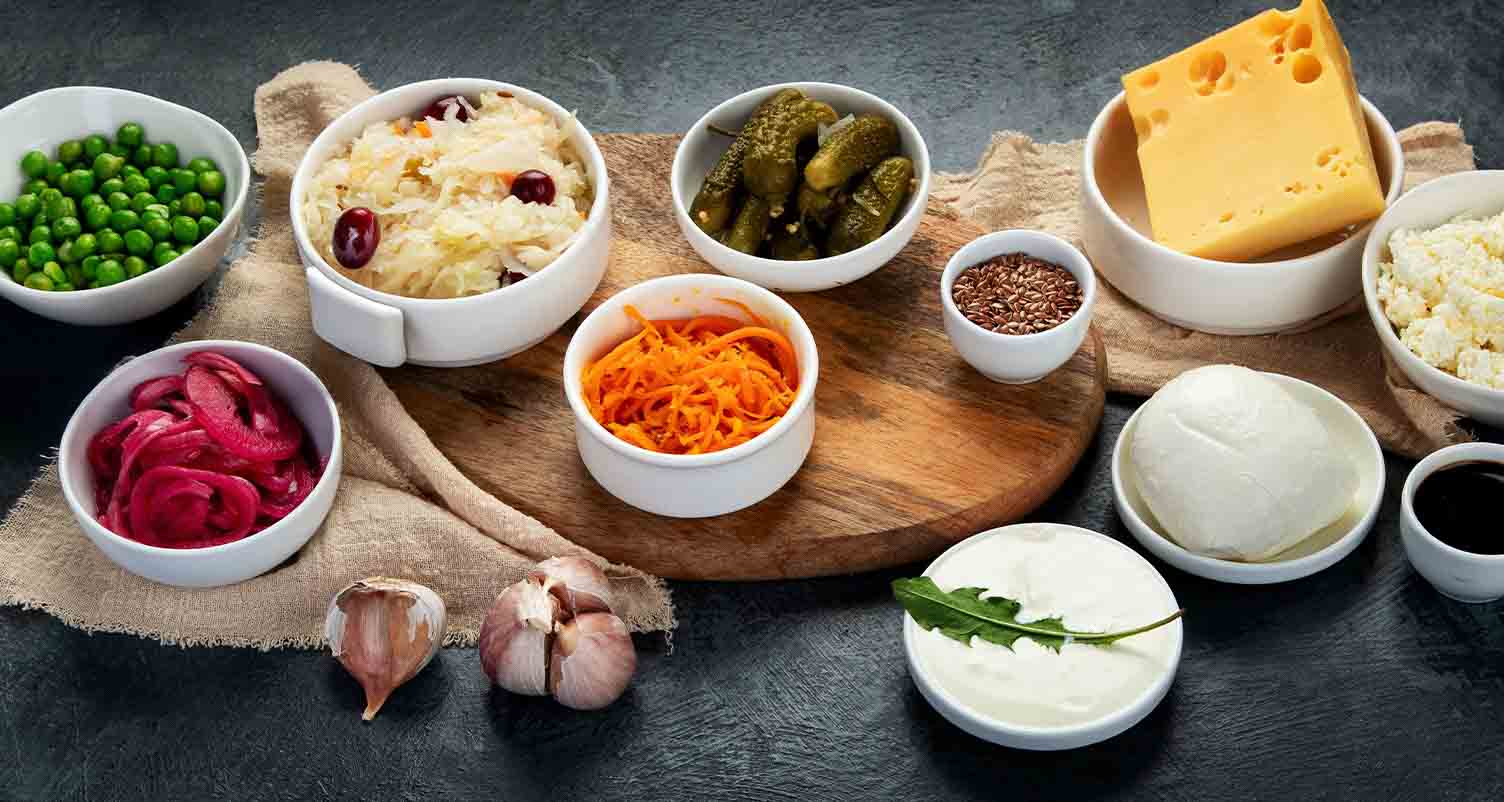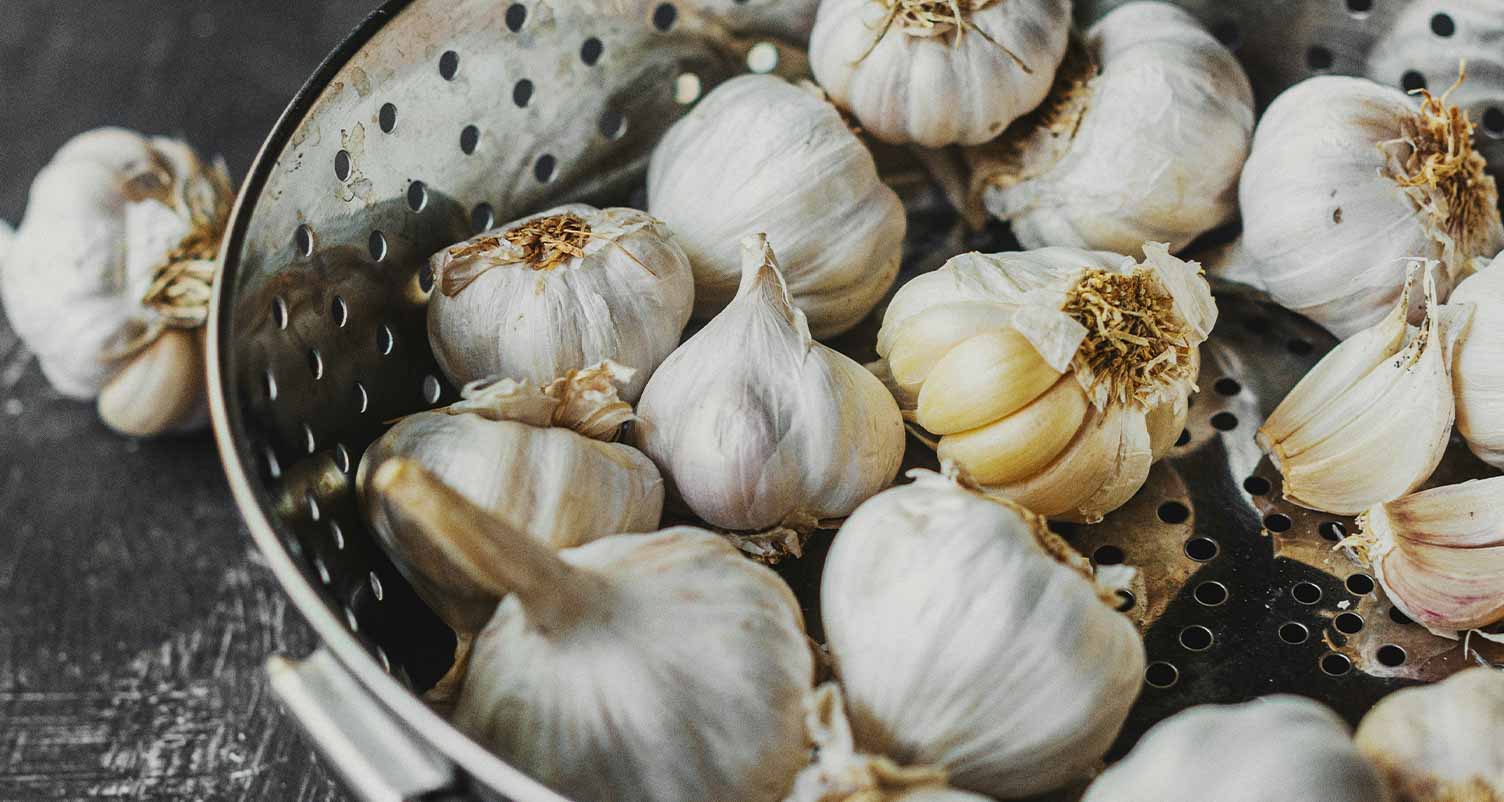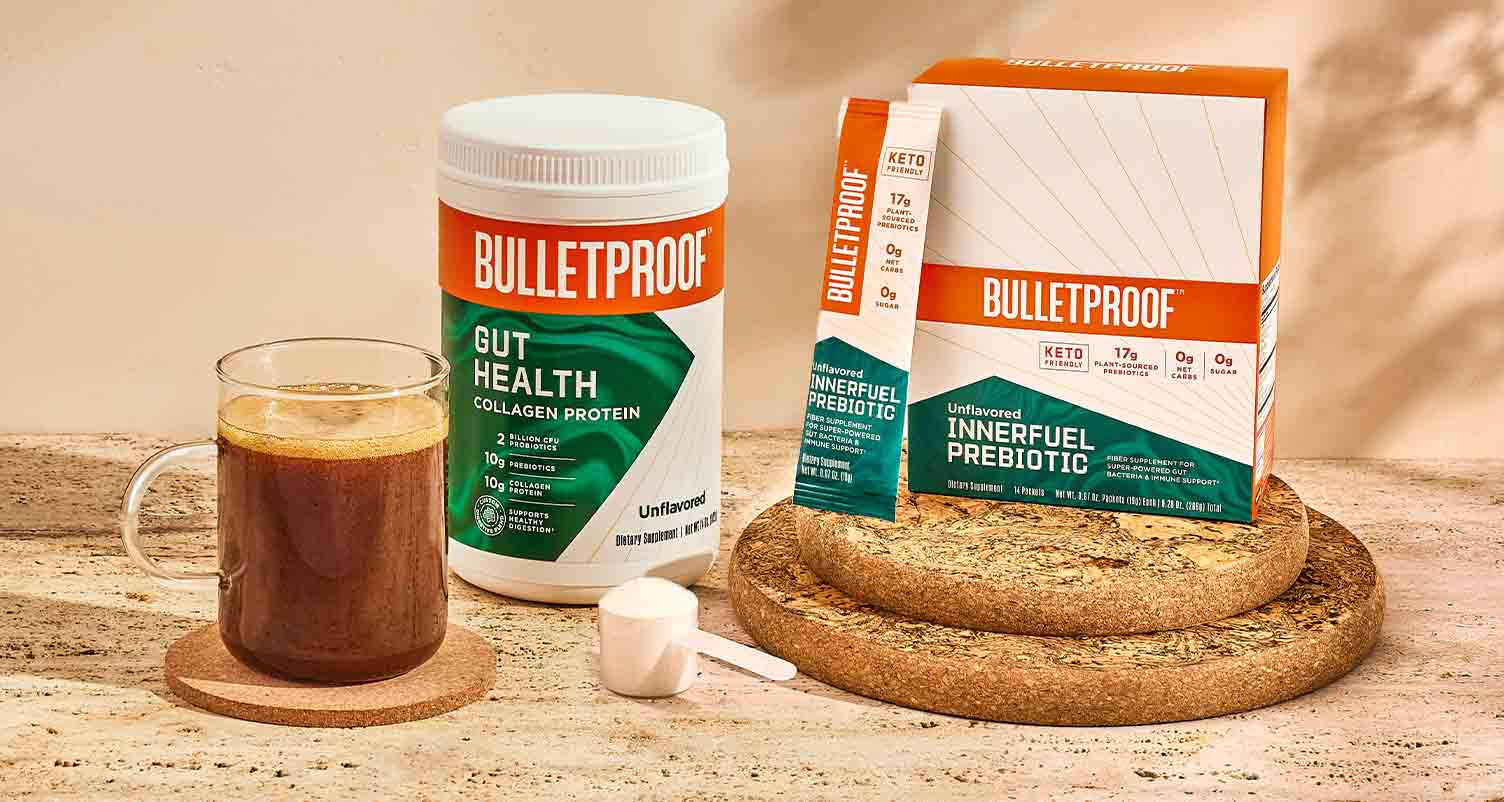- Probiotics are beneficial bacteria that help balance the bacteria in your gut.
- Prebiotics are types of fiber that feed the bacteria.
- Both probiotics and prebiotics play roles in your whole-body health.
Wondering how to improve your gut health?
When it comes to your gut, probiotics get a lot of praise. Probiotics (often called “good” bacteria) promote a healthy balance of bacteria in the gut. But what are prebiotics? These unsung heroes also play an essential role. Prebiotics are a food source for healthy bacteria.[1]
It may help to think of them as the Batman and Robin of gut health. They work together to restore peace and harmony in the digestive system. Keep reading to learn about prebiotics vs. probiotics. We’ll explore their differences and the important roles they share.

What Are Probiotics?
We must first understand the gut microbiome to answer the question, “What are probiotics?”. This environment is also known as the gut flora.
The gut microbiome contains all the bacteria in your gastrointestinal tract. There are more than 1,000 different types of bacteria. Some are “good” bacteria and some are “bad” bacteria.[2]
A healthy gut microbiome is essential for good health. It supports various bodily functions, such as providing a top-notch immune system and a boosted mood. An unbalanced gut microbiome is known as gut dysbiosis. It’s a state you want to avoid, as it raises the risk for weight gain, type 2 diabetes and high cholesterol.[3]
Probiotics are live bacteria and yeasts (microorganisms) like the good bacteria already in your gut. They are often called “good,” “friendly,” or “beneficial” bacteria because they act as peacekeepers to maintain harmony.
Many of these live microorganisms are in fermented foods. Probiotic foods include yogurt, kombucha, kefir, sauerkraut and pickles.[4] Probiotics are popular gut health supplements. The best probiotics for gut health are available in pill, powder or liquid form. There are different strains of probiotic bacteria. Lactobacillus and Bifidobacterium are the most common.

What Are Prebiotics?
Prebiotics are carbs (mostly fiber) that the body can’t digest. They act as food for your gut’s good bacteria (microorganisms).
These bacteria produce short-chain fatty acids (SCFAs), which help retain a strong gut lining to keep out harmful invaders, such as bacteria and viruses.
A strong gut lining protects against digestive issues, reduces inflammation and may help prevent colon cancer.[5]
Here are some foods that pack a prebiotic punch:
- Garlic
- Leeks
- Asparagus
- Jerusalem artichokes
- Avocado
- Bananas
- Barley
- Legumes
- Dandelion greens
- Oats
If you struggle to eat these foods, try a prebiotic supplement. Feed your gut with the very best: Bulletproof InnerFuel Prebiotic. This plant-based supplement may help keep you regular, ease gas and bloating, and support your immune system. Scoop the science-backed ingredients into your favorite drink, like Prebiotic Bulletproof Coffee.

Similarities and Differences of Prebiotics vs Probiotics
Similarities
Prebiotics and probiotics are like two peas in a pod. They help maintain a healthy gut by fostering a balanced microbiome. Research indicates that probiotics and prebiotics may also help improve digestive conditions, such as irritable bowel syndrome (IBS).
A meta-analysis of 59 studies found that probiotic supplements reduced the symptoms of IBS. These included abdominal pain, bloating and the frequency of bowel movements. A single strain of probiotics and a shorter treatment duration (less than eight weeks) were most effective.[6]
Prebiotics are also promising. Research has found that some can help increase Bifidobacterium. This healthy gut bacterium may help ease abdominal pain from IBS. However, we need more research on both supplements.[7]
Differences
When looking at prebiotics vs. probiotics, the main difference is in their roles. Probiotics are bacteria, while prebiotics are non-digestible fiber.
Despite their differences, they work well together.
How They Work Together
Combining prebiotics and probiotics is a process sometimes called microbiome therapy.[8]
Prebiotics fuel good bacteria and help them multiply. This prevents harmful bacteria from outnumbering the good bacteria.
They are also a dynamic duo in synbiotics. Synbiotics refers to food ingredients that contain both prebiotics and probiotics.[9] Synbiotics are available in supplements and foods. Synbiotic foods include dairy, yogurt and kefir. You can also combine certain gut health foods to apply synbiotics, such as yogurt (probiotics) and bananas (prebiotics).
The best supplements for gut health incorporate both probiotics and prebiotics. At Bulletproof, we take that concept seriously with our Express 3-in-1 Probiotic. It contains prebiotics, probiotics and postbiotics. What are postbiotics, you ask? These are the byproducts of probiotics when they eat prebiotics. Combining probiotics, prebiotics and postbiotics delivers the ultimate gut health protection.
Collagen also supports good gut health by strengthening and repairing the gut lining. Take advantage of these benefits with Gut Health Collagen Protein.
Prebiotics and probiotics sound similar, but they play different roles in supporting gut health. Prebiotics are a type of fiber that the human body can’t digest. However, probiotics can. They produce SCFAs that support the gut lining. Probiotics replenish good bacteria in the gut to help maintain a healthy balance. Eating balanced amounts of probiotics and prebiotics helps restore harmony in the gut. This, in turn, can improve your whole-body health.
Join the Bulletproof Revolution
Sign up for early access to sales, product launches, the latest Bulletproof news and more!







